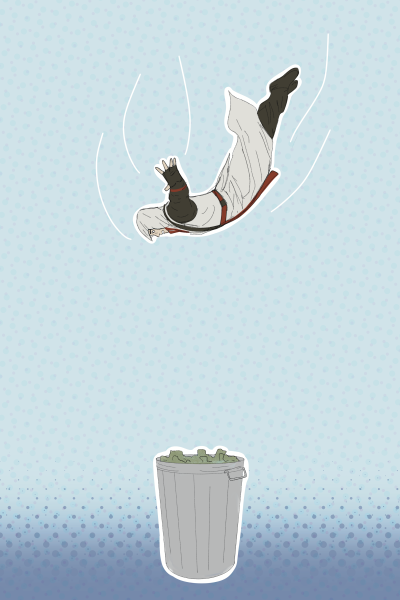
The Assassin’s Creed series has been a cornerstone for Ubisoft since its debut in 2007.
The franchise, based on historical events, gripping narratives and innovative gameplay, captured the hearts of millions. It was Assassin’s Creed Unity that marked a turning point for both the company and fans. Its launch in 2014 was flooded with game-breaking bugs and performance problems that overshadowed its artistic achievements. This eventually led to a decline in the reputation of the franchise. Subsequent titles after Unity diverged from the roots that harboured the series and made it unique.
Set during the French Revolution, Assassin’s Creed Unity aimed to revolutionize the series with a new stealth and fluid parkour system. The richly detailed recreation of Paris was an undeniable technical achievement.
I spent most of my time in the game parkouring through the rooftop of Notre Dame, admiring the beautiful cityscape of 18th-century Paris.
Unity’s combat was overhauled compared to the previous titles, making battles much more engaging for those who sought a challenge. Others had the option of taking a stealthier approach to reach their targets. Facial animations in the cinematic cutscenes were flawless and contained more emotions in contrast to the recent title releases from the franchise. Moreover, the inclusion of co-op missions introduced a new dimension of multiplayer experience, emphasizing teamwork and strategic planning.
Narratively, the origin story of Arno Dorian felt rather dull. His personal arc, intertwined with the political disruption of the French Revolution had potential for exploration. The game touched on keen philosophical and moral questions such as loyalty, revolution and the price of freedom — concepts that could have elevated the series to greater storytelling heights if explored more in-depth.
Following Unity, Ubisoft steered the franchise to a brand-new direction, starting with Assassin’s Creed Origins in 2017. While the newly introduced RPG mechanics revitalized the series for some, it fundamentally stripped the franchise of its identity, leading to the downfall of the franchise.
Stealth and parkour elements, which were the defining features of Assassin’s Creed, became secondary to enormous maps, loot systems and endless grinding. These bloated open worlds emphasized repetitive objectives, sacrificing the narrative-driven focus that made the earlier games appealing. The facial animations deteriorated and lacked emotion and even the dialogue became monotonous. Playing the recent titles felt like it was not about assassins anymore.
Looking back, Assassin’s Creed Unity was a game ahead of its time.
Unity’s small yet densely packed immersive world, ambitious mechanics and emphasis on historical authenticity could have been instrumental in refining the series’ evolution. If only Ubisoft had committed to fixing its flaws and building on its strengths, Unity could have become a blueprint.
With the return to stealth-focused gameplay in Assassin’s Creed Mirage, released in 2023, there is still hope for the franchise to reclaim its identity and rediscover what made the series resonate with players in the first place.
However, the lessons of Assassin’s Creed Unity remain clear.
Innovation should build on a franchise’s strengths rather than replace them. By learning from the failures and successes of Unity, Ubisoft can create a path back to the heart of what made Assassin’s Creed a groundbreaking series in the video game industry. Unity may have stumbled but its ambition and potential deserve recognition.




